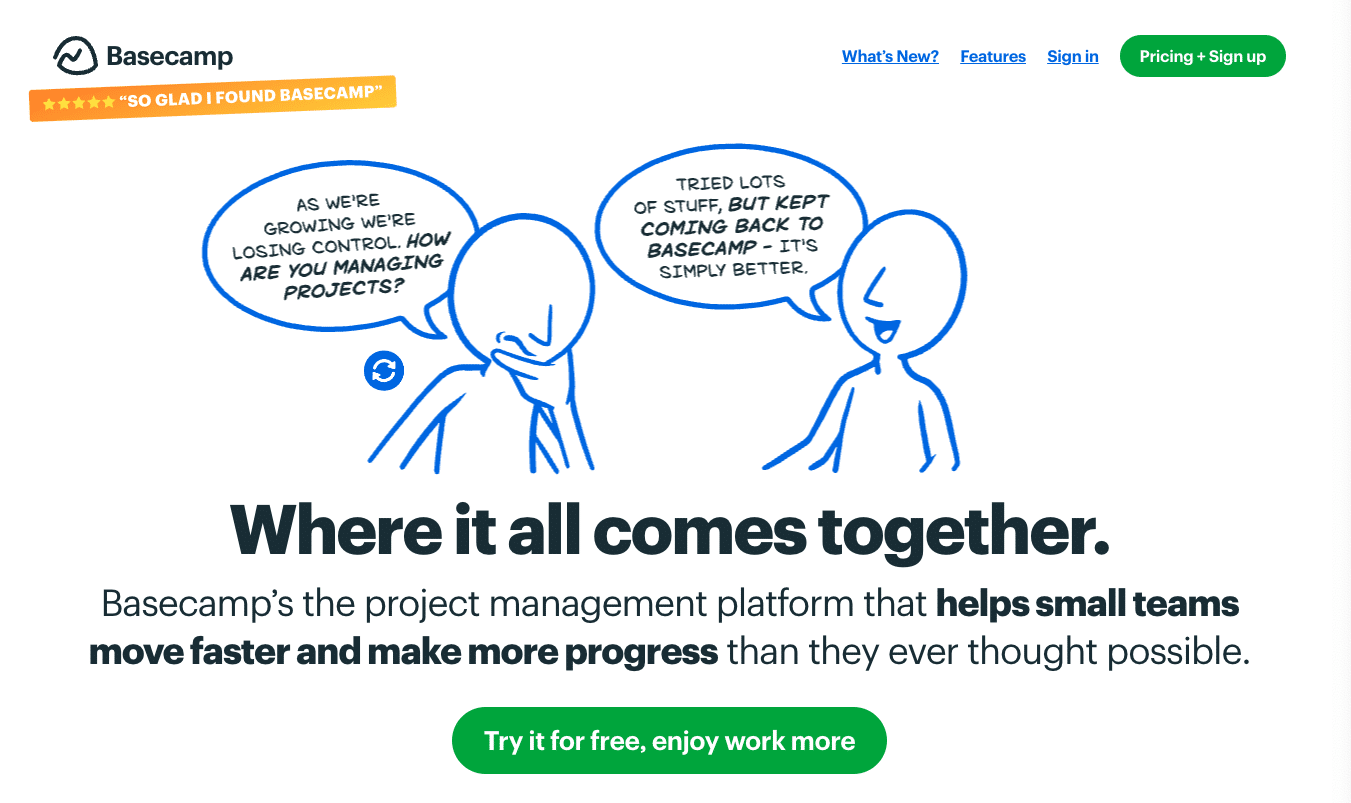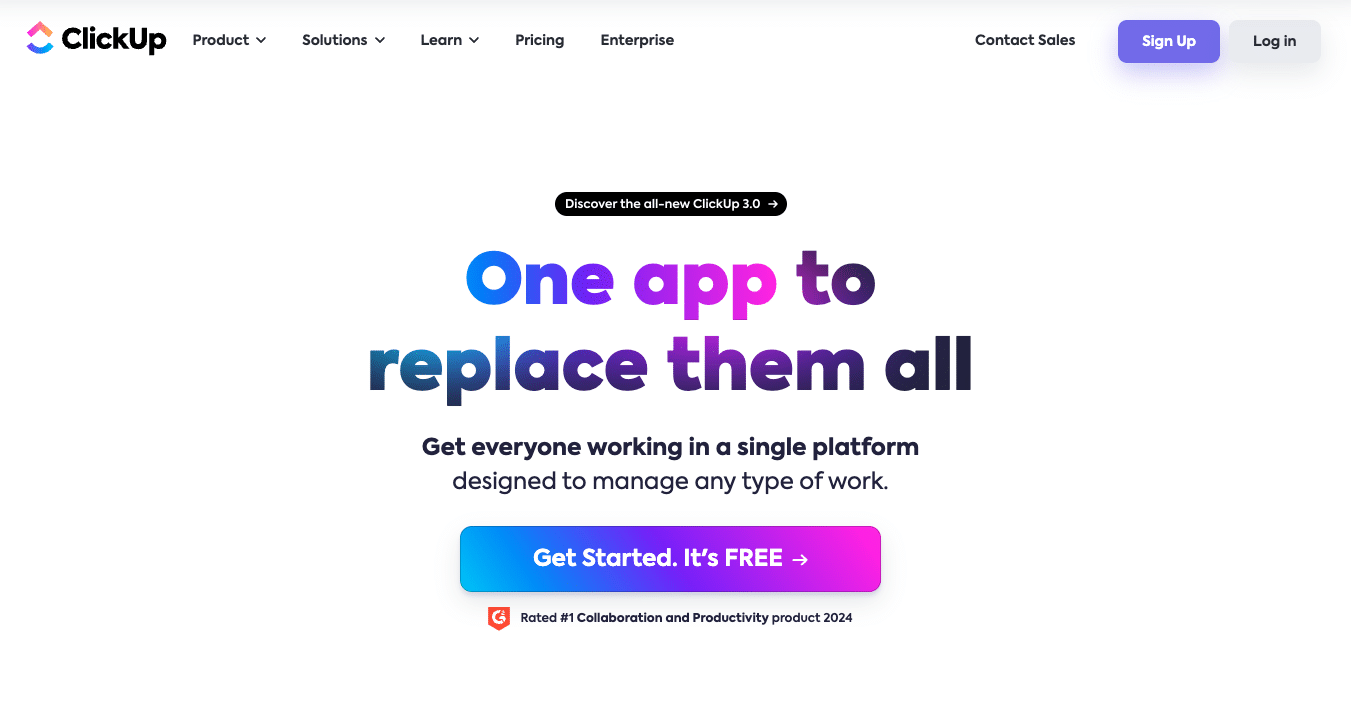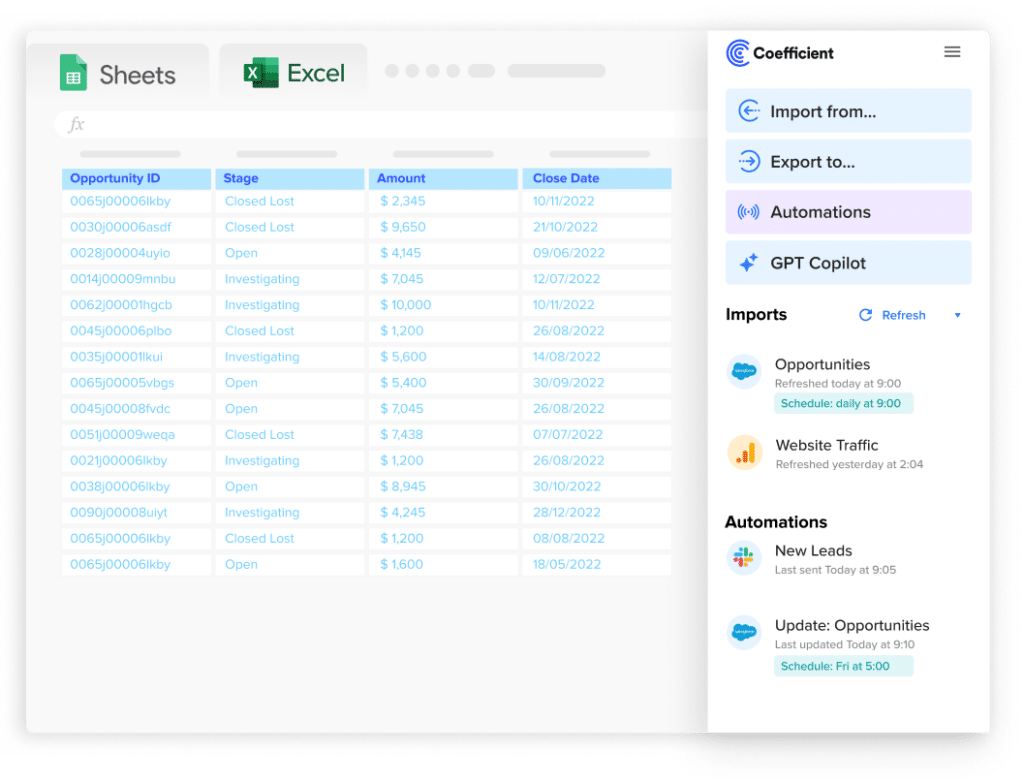In the hunt for a Smartsheet Alternative? You’re not alone.
The nature of work is changing. One-size-fit-all project management solutions aren’t enough. Teams need flexible tools tha elevate our workflows – not just accommodate them.
This guide will introduce you to six alternatives to Smartsheet that will help improve your productivity.
Why Consider Alternatives to Smartsheet?
- Budget Constraints: For small teams, Smartsheet’s pricing model can be prohibitive.
- User Experience: A comprehensive feature set results in a complex interface that’s hard to learn.
- Unnecessary Complexity: Teams with simpler projects may find Smartsheet’s breadth of features excessive.
- Specialized Needs: Some projects require specific functionalities that Smartsheet lacks.
- Interface Preferences: User interface aesthetics and experience preferences vary widely.
Smartsheet Alternatives
Coefficient + Google Sheets/Excel

Coefficient does more than integrate live business data into Excel and Google Sheets. It transforms spreadsheets into dynamic engines for work.
Coefficient’s no-code interface and powerful automation capabilities empowers users of any skill-level to use data to improve the way they work. For example, project managers can leverage its automated alerts to keep everyone in the loop updated through email or Slack.
Pros:
- Simplifies the integration of live data from CRMs and other tools into spreadsheets, making it accessible to users at all technical levels.
- Reporting: Offers a variety of dashboard templates that can be easily connected to your data sources, facilitating comprehensive reporting.
- Enables sharing of reports and setting up of real-time alerts at no extra cost, enhancing team collaboration.
Cons:
- Scheduled data refreshes and automations may incur additional costs, though the service provides significant value that justifies the investment.
ProofHub

ProofHub offers a centralized project management solution, combining features like task assignments, time tracking, and file sharing in a user-friendly interface.
Pros:
- Includes task management, Gantt charts, and custom reports to cater to various project management needs.
- A single pricing plan for unlimited users, which is great for growing teams.
- Designed with simplicity in mind, ensuring a smooth learning curve.
Cons:
- May not offer as extensive integration options as some competitors, potentially limiting its utility in tech ecosystems.
- Unlike some alternatives, ProofHub doesn’t offer a free plan, which might deter small teams or individuals.
Basecamp

Basecamp is tailored for remote teams, emphasizing simplicity and clarity in project management with features like message boards, to-do lists, and automatic check-ins.
Pros:
- Known for its clean and intuitive design, making navigation and task management straightforward.
- Offers a flat pricing model that includes unlimited users and projects, making it cost-effective for larger teams.
- Provides tools specifically designed to enhance team interaction and client engagement.
Cons:
- May not be sufficient for teams that require detailed project planning tools like Gantt charts.
- Offers fewer customization options compared to more flexible platforms, which might not suit all project types.
ClickUp

ClickUp positions itself as a highly customizable project management tool, offering a wide range of views, integrations, and features tailored to teams of all sizes and industries.
Pros:
- Allows teams to tailor nearly every aspect of the platform to their workflow.
- Provides a comprehensive set of features even in its free tier, making it accessible to smaller teams.
- From list and board views to Gantt charts and calendars, it supports various methodologies like Agile and Scrum.
Cons:

Stop exporting data manually. Sync data from your business systems into Google Sheets or Excel with Coefficient and set it on a refresh schedule.

- The vast array of features and customization options can be overwhelming for new users, leading to a steeper learning curve.
- Users might experience slower performance as complexity and data volume increase.
Wrike

Wrike offers a blend of traditional and modern project management features, supporting custom workflows, detailed reporting, and real-time collaboration across teams.
Pros:
- Enables personalized views to monitor projects, tasks, and analytics.
- Provides detailed insights into project performance, resource allocation, and more.
- Facilitates team communication with built-in commenting, document sharing, and live editing.
Cons:
- The extensive functionality can be daunting for newcomers, requiring time to fully leverage the platform.
- While it offers a free tier, advanced features are locked behind higher-priced plans, which might not be suitable for all budgets.
Podio

Podio by Citrix is a flexible platform that allows users to create custom applications and workflows, making it a strong candidate for teams with unique project management and CRM needs.
Pros:
- Users can build custom apps to manage their work, without any coding knowledge.
- Includes built-in chat and video call features, enhancing team collaboration.
- Connects with a wide range of third-party services and tools, enhancing its utility.
Cons:
- The flexibility and customization can lead to complexity, potentially overwhelming new users.
- While Podio’s pricing is competitive, the costs associated with its advanced features and add-ons can accumulate, potentially making it less attractive for cost-sensitive teams.
The Smarter Alternative to Smartsheet? Coefficient.
While Smartsheet offers powerful functionalities, its challenges have led many to explore alternatives.
Ready to empower your project management tools with Coefficient? Visit us to discover how data integration can be seamless, providing real-time insights for smarter decisions.

